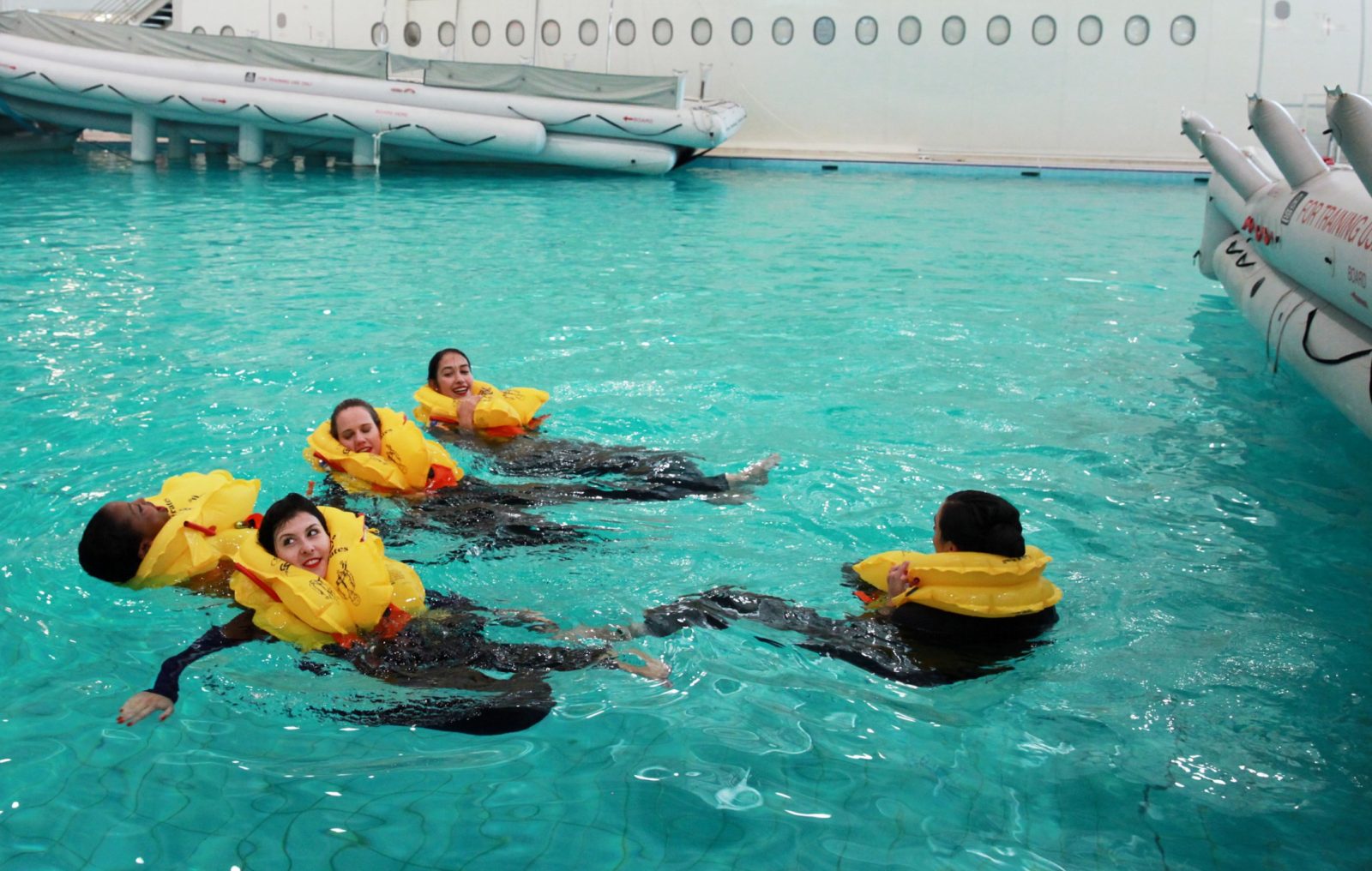
We all know that cabin crew have to go through weeks of intensive initial training in order to equip them with the skills they need to deal with all kinds of emergencies that might arise at 39,000 feet. They are the paramedics, firefighters and police officers of the sky and once every year cabin crew will go back to training college to prove they still have those skills. The daunting experience which is known as ‘recurrent’.
Thankfully, one of the skills that cabin crew aren’t generally expected to demonstrate every year is the ability to swim. And let’s be really honest – it’s a skill that is so unlikely to ever be needed as to be almost redundant. But most aviation authorities insist cabin crew possess these skills in the case of (1) a plane needing to ditch in the ocean, and (2) the ditching actually being successful without the plane breaking up into a thousand pieces.
How different airlines handle this requirement is generally left up to them but you can’t get around the fact that cabin crew must be able to swim and they will be tested. That’s all well and good but is that in fact a policy that’s discriminating against otherwise fantastic candidates?
That’s a question that struck Sir Richard Branson, the businessman behind Virgin Atlantic. In a recent blog post, Sir Richard says the swimming requirement always “felt a little bit unnecessary to me – but safety first.”
“I hadn’t given this subject much thought until I was on a Virgin Atlantic flight recently. One of our cabin crew told me how the swimming requirement was a real problem for many people, especially for some minority groups,” he wrote. “This is certainly the case here in the Caribbean. I have taught many people to swim personally, and as part of Unite BVI’s work in the British Virgin Islands we are looking into boosting youth swimming education programs.”
“In order to improve the diversity of our airline and give everybody a fair chance to work with us, we needed to look into the swimming requirement issue,” Sir Richard continued.

The swimming requirement won’t be completely eliminated (it’s an official regulation after all) but candidates will now be given until the start of their training course to learn to swim. The airline has put together a list of accredited swimming schools where candidates can learn to swim in the time between their interview and starting with the airline.
“For successful candidates, their name will be added to a swimming spreadsheet and we will check in with them a week before they are due to start their course. Hopefully, by then they will have got the support they need and learnt to swim. Then we can go ahead and complete the hiring. It’s such an improvement on simply writing people off at the start of the process because they can’t swim,” Sir Richard concludes.
It’s a really simple yet ingenious way to get around a problem that actually puts off so many talented candidates from becoming cabin crew.
Virgin Atlantic has also recently installed a brand new training rig at its headquarters in Crawley near Gatwick Airport. Based on a Boeing 787, the rig can be used to test crew on a number of scenarios including smoke and fire events, as well as emergency landings and, of course, water ditching.
The airline isn’t currently recruiting new cabin crew and is believed to be working through a long backlist of candidates who will begin training at some point in the next few months.
Mateusz Maszczynski honed his skills as an international flight attendant at the most prominent airline in the Middle East and has been flying ever since... most recently for a well known European airline. Matt is passionate about the aviation industry and has become an expert in passenger experience and human-centric stories. Always keeping an ear close to the ground, Matt's industry insights, analysis and news coverage is frequently relied upon by some of the biggest names in journalism.







